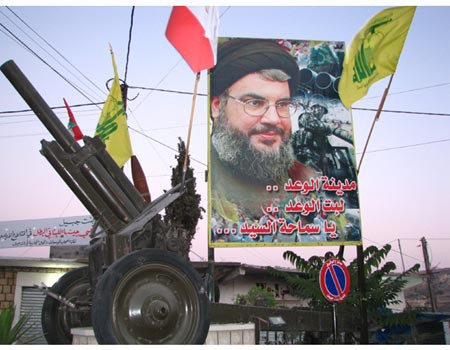From the Associated Press:
RAMALLAH, West Bank (AP) – Palestinian President Mahmoud Abbas said Monday he won’t be deterred from seeking U.N. recognition of a state of Palestine, despite what he said was “tremendous pressure” to drop the request and instead resume peace talks with Israel.
Abbas spoke to reporters en route to New York, where he is to seek U.N. membership for “Palestine” in the West Bank, Gaza Strip and east Jerusalem, territories Israel captured in the 1967 Mideast War. The U.S. and Israel oppose Abbas’ bid, saying a state can be established only through negotiations.
Abbas has said that negotiations remain his preference, but that they must be based on the pre-1967 war lines and include a halt of all Israeli settlement construction on occupied land.
Abbas said Monday that even if Israel were to agree to those two demands, “we will go to the U.N. because there is no contradiction between negotiations and going to the U.N.”
Officials from the Quartet of Mideast mediators–the U.S., the European Union, Russia and the United Nations–have been holding talks in recent days in hopes of persuading the Palestinians to drop the U.N. bid and instead resume peace talks with Israel.
Another Quartet meeting was planned for Monday, officials said, and EU foreign policy chief Catherine Ashton might present more ideas to Abbas later in the day.
The Palestinian leader said, “Last week, there was tremendous pressure to return to negotiations on a new basis,” but that the proposals for a new framework for talks were unacceptable.
Full U.N. membership can only be bestowed by the U.N. Security Council, where the recognition bid could be derailed if fewer than nine of the 15 members vote in favor or if the U.S. uses its veto, as it said it would.
U.S. officials believe six other members may vote against or abstain, meaning the Palestinians would fall short. That tally could not be immediately confirmed. An Israeli official said it’s too early to say how the votes would go, while a senior member of Abbas’ delegation said he believes 11 Security Council members will back the Palestinians.
In Warsaw, Poland, which holds the rotating European Union presidency, said it was seeking member consensus on the Palestinian bid for independence. Foreign Minister Radek Sikorski said the EU’s position would depend on the wording of the Palestinian request, which is not yet known. Neither Britain nor France, both permanent members of the Security Council, have said how they will vote.
While the U.S. can derail the Palestinian bid at the Security Council in any scenario, the breakdown of the votes is key to both sides. Nine or more votes for the Palestinians would signal broad support for their statehood quest, while the U.S. image in the Arab world would suffer another blow if it uses its veto in this case.
Abbas said his plan, for now, is to go to the Security Council, but suggested he might change tactics at the last minute and go for the lesser option of General Assembly approval of Palestine as a nonmember observer state. Chances for success are much higher in the General Assembly, which Abbas is to address Friday.
“From now until delivering the speech at the General Assembly, we have no thought except going to the Security Council,” he said. “Then, whatever the decision is, we will sit with the leadership and decide.”
A nod from the General Assembly could give the Palestinians access to international judicial bodies such as the International Court of Justice and the International Criminal Court.
The Israelis fear such courts would target them unfairly. The Palestinians are “going to the U.N. to get this state not to make peace but to challenge Israel’s legitimacy in international arenas and to try to undermine the peace process,” Israel’s ambassador to the U.S., Michael Oren, told CNN. His comments reflected Israel’s concern about further isolation and underscored the country’s mistrust of the United Nations.
Abbas, meanwhile, said he was warned by American officials that “things will be very difficult after September.”
“We don’t know to what extent,” he said. “We will know later.”
Some members of Congress have been threatening to punish the Palestinians.
“Current and future aid will be jeopardized if you abandon direct negotiations and continue your efforts,” Reps. Kay Granger, Republican chairwoman of the House of Representatives Appropriations foreign operations subcommittee, and Democrat Nita Lowey, the panel’s senior Democrat, wrote to Abbas this summer, echoing a plea they made to the Palestinian leader in an April letter.
Concerning the possibility of mass protests in the Palestinian territories, Abbas said, “All our people will do is demonstrate peacefully inside the (Palestinian) cities.”
Israeli security forces have been preparing for possible West Bank violence, but Amos Gilad, a senior Israeli Defense Ministry official, played that down. “I am not identifying energy for violence and terror,” he told reporters.
Abbas, however, holds no sway over the Gaza Strip or its rulers from the violently anti-Israel group Hamas, which drove out forces loyal to Abbas during a power struggle in 2007. Hamas opposes the U.N. initiative.

COMMENTS
Please let us know if you're having issues with commenting.